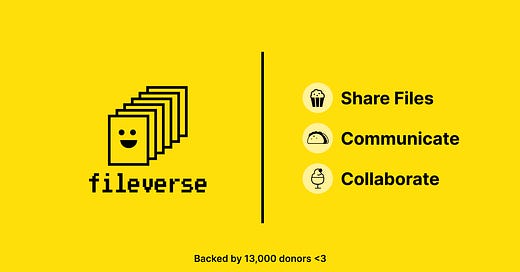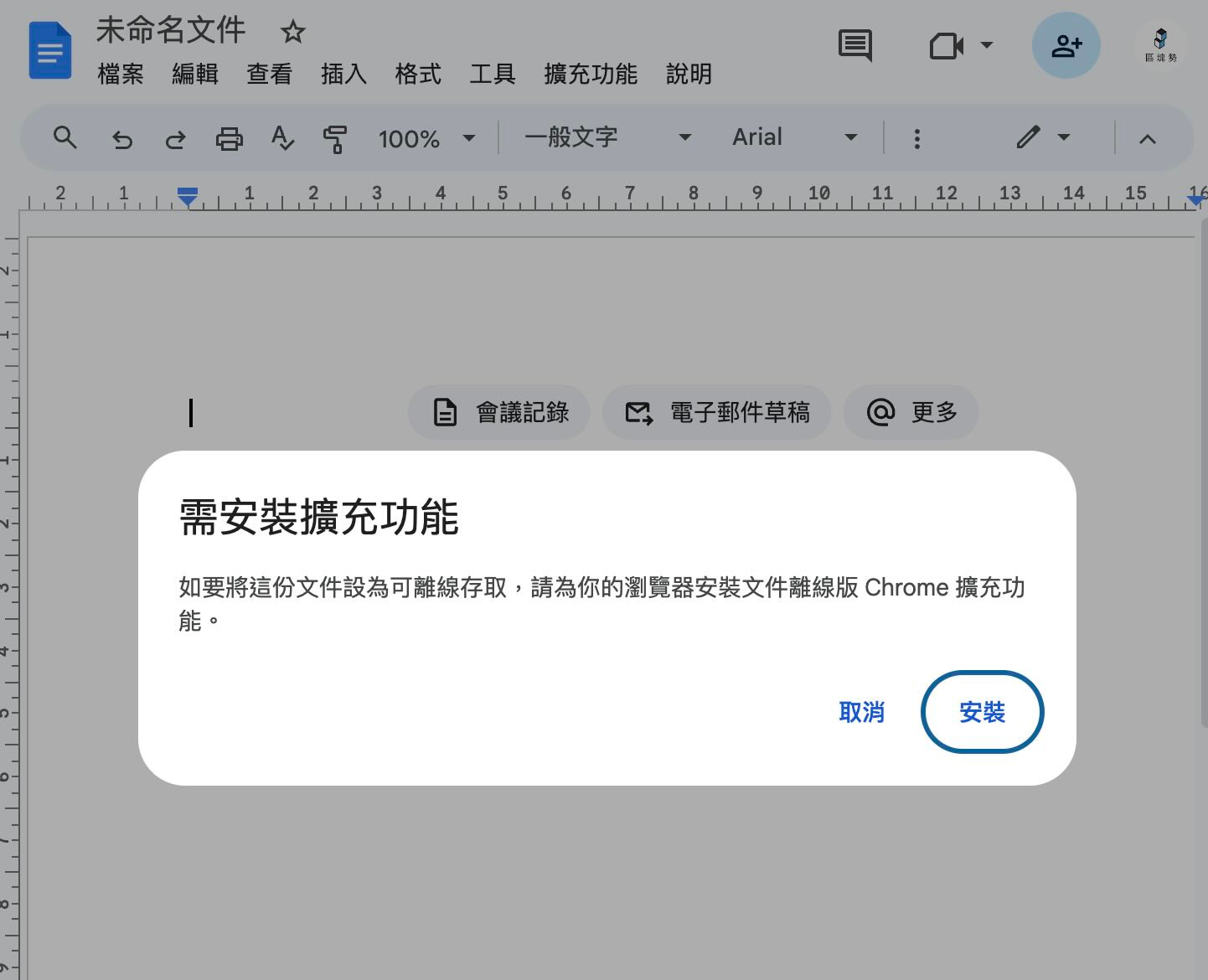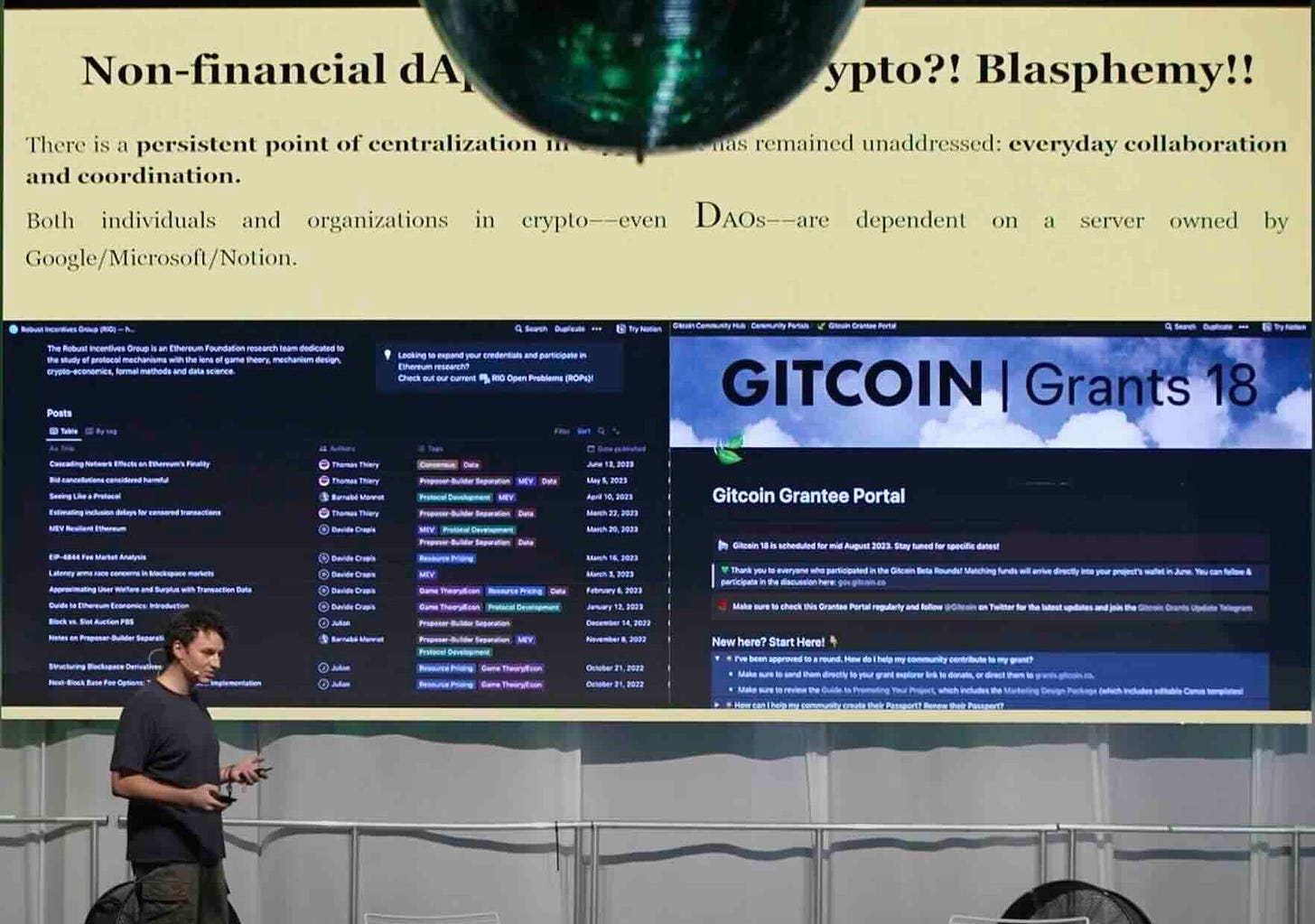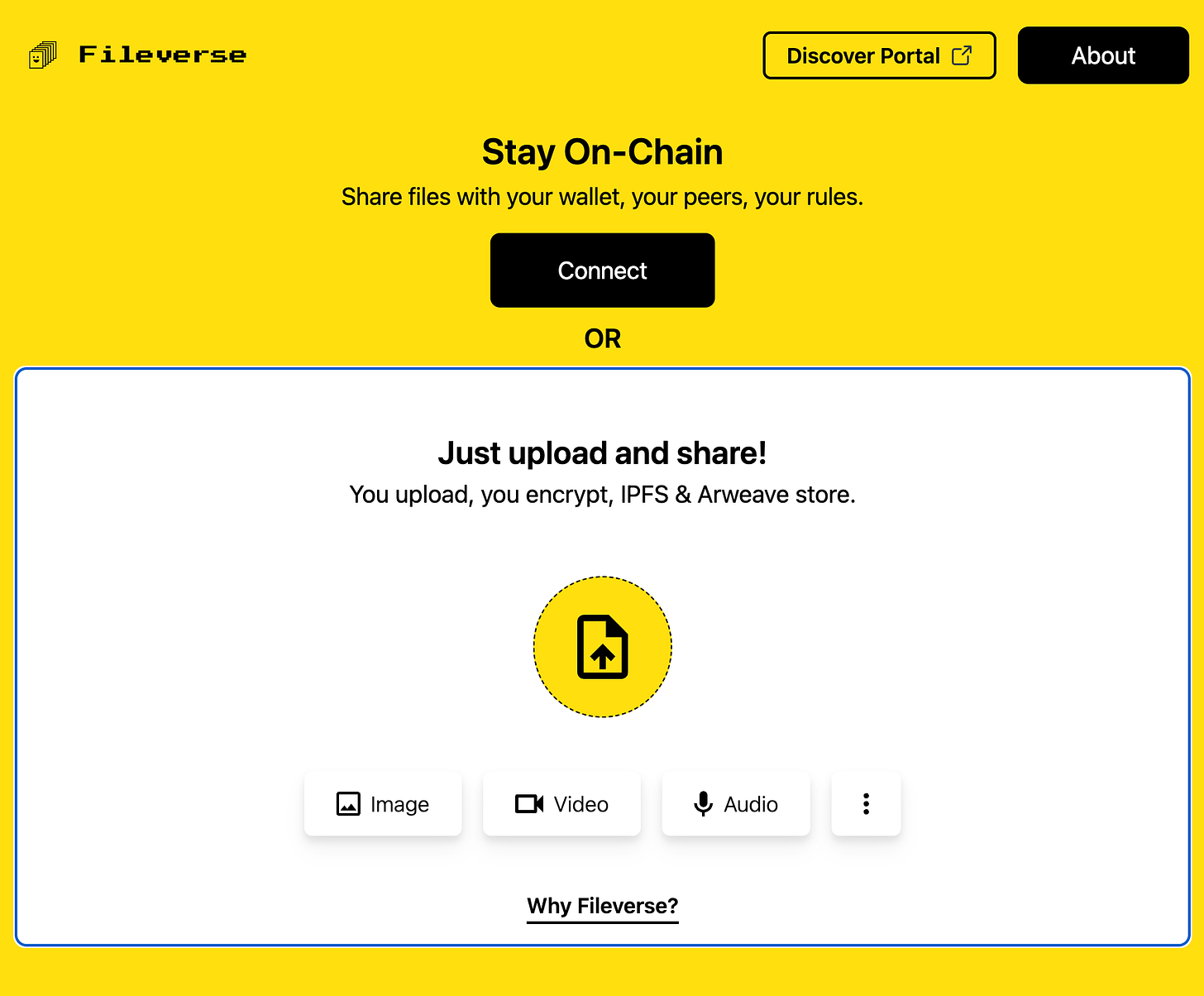Vitalik is also using it! A writing tool—Fileverse creates a decentralized version of Notion
#638
GM,
Blocktrend will host a film screening on Saturday, October 19th, from 7 PM to 9 PM. The promotional poster is still being made, but registration will open at 12 PM on Tuesday, October 8th. Due to venue limitations, only 60 spots are available, with priority given to members. If there’s strong interest, we might hold a second screening in the future.
Film Title: Vitalik: The Story of Ethereum
Time: Saturday, October 19th, 7 PM to 9 PM
Location: Fablab Taipei (No. 1, Yumen St., Zhongshan District, Taipei City, opposite the Yuanshan Expo Dome)
Registration link: Opens at 12 PM on Tuesday, October 8th
Blocktrend secured the public screening rights for $200, down from the original $500, thanks to my translation of the Traditional Chinese subtitles. The cost will be covered by the funds raised through public support, so a big thank you to all the readers who supported with their spare change!
If no one else secures the public screening rights or if the film doesn’t get a theatrical release, it will continue to be shown in this kind of grassroots, community-driven format. Personally, I think watching this film in a luxury theater would feel disconnected—the atmosphere of a more casual screening is much more fitting for it 😂. Now, let’s get to the main point.
A member once told me they could sense my mood fluctuations through my writing. When I’m in a good mood, the articles are light and easy to understand. But when the articles are difficult to grasp, it’s likely that I wasn’t feeling great. To show that I’m in a good mood today, enjoying a day off due to the typhoon, I’ll introduce a lightweight productivity tool that Vitalik Buterin also loves—Fileverse. But first, here’s a fun fact!
Keyboard Shortcuts
Did you know that by typing "docs.new" in your browser’s address bar, you can instantly create a new Google Docs file? You can do the same with "slides.new" to create a new Google Slides presentation or "forms.new" for a Google Form. I’m not sure if this trick will save you time, but it ties into today’s main topic—Fileverse.
Fileverse is a non-financial application, which is quite rare in the web3 space. What’s even more impressive is that people who have never bought cryptocurrency or created a wallet can easily use it. Fileverse functions as a decentralized version of Notion or Google Workspace. The two products they’ve launched so far are decentralized document management and cloud storage, built on decentralized infrastructures like IPFS1, Arweave2, and ENS domains3.
I recommend trying out the decentralized document tool, "dDocs." Just type "ddocs.new" into your browser to access it. The development team purposely added a "d" in front of "docs.new" to make it easy to remember and access the decentralized version of Google Docs.
I’m quite picky when it comes to online document services, as they’re tools I use daily. But testing whether one works well is simple—just write an article with it. In fact, I wrote this entire article using dDocs, and Vitalik’s latest post was written with it as well. I’d give the product a solid 90 out of 100.
What sets it apart? dDocs recently launched an "offline editing" feature, allowing you to work on documents without internet access, even on a plane. To test this feature, I turned off my internet and wrote an article in a café. Once I reconnected, the article was still there, and I found my productivity increased! Google Docs also has an offline editing feature, but it requires installing an additional plugin.
But dDocs also has some obvious drawbacks. The main issue I encountered was the image upload size limit of 100KB. Even a simple screenshot easily exceeds that, so I deducted 10 points.
Aside from that, I couldn't really tell the difference in functionality between dDocs and Google Docs. But don't think that's a bad review! Achieving the same user experience with a decentralized product as with a centralized one is already an impressive feat. Once the product usability is confirmed, discussing its decentralization becomes even more meaningful.
Decentralization
I found a 2023 talk by Fileverse co-founder Andreas Tsamados, where two screenshots from Notion were displayed in the slides—one from the Ethereum Foundation (left) and the other from Gitcoin (right), both showing collaboration documents. Andreas pointed out that even the key advocates of decentralization are using centralized document collaboration services, which shows just how limited decentralized options truly are.
The Fileverse website explains the pros and cons of web2 and web3 document collaboration tools:
Traditional services make it easy and free to share document permissions, but when they offer free services, you are the product. We believe that the user should not be the product—Fileverse should be. Fileverse is a web3 file-sharing tool that leverages p2p storage networks (like IPFS) and encrypts/decrypts content using private key signatures through crypto wallets (like MetaMask). You don’t need to leave your name, no email is required, there are no server outages, no privacy violations, and no censorship. It’s time to use a web3 infrastructure to achieve this goal, and the time to use Fileverse is now.
This year, the Ethereum Developer Conference (Devcon7) designated Fileverse as the official document collaboration tool, encouraging participants to record, share, and collaborate through this decentralized platform. Fileverse emphasizes that every word you write is end-to-end encrypted and stored on a decentralized drive.
To be honest, I was a bit skeptical of this claim. It's not that I think Fileverse is lying, but throughout the process of writing this article, I didn’t feel any of the "friction" typical of using decentralized applications. Encryption, decentralized storage—could it really be this seamless? To understand the underlying mechanism, I dug up a technical article from the Fileverse website:
The core of our system allows users to deploy smart contracts through their own EOA wallets or Safe multisig wallets. This smart contract acts as a registry, recording your wallet address and the hash corresponding to the content you create. When users deploy the smart contract, they can access the static website available on IPFS through any public gateway.
I’ve only quoted a small part—it’s very technical. Let me try to explain it in simpler terms. Although Fileverse allows people without wallets to use the service, that’s essentially a guest mode. Once you close the document, the content is gone. If you want to save the document's content, you’ll still need to log in with a wallet. After connecting a wallet, Fileverse generates a public key to encrypt the content, ensuring that not even Fileverse’s engineers can decrypt it—only the user and designated recipients can view the content.
Then, Fileverse uses a smart contract to manage all the content. After logging in with a wallet, users can access the documents they previously created. These files are stored on decentralized drives, and Fileverse supports various decentralized storage mechanisms, including IPFS, Arweave, gun.db, and even user-specified servers. This approach distributes data to global users, providing an economic incentive to ensure that content is always accessible. In contrast, storing data on Google servers essentially means that the data is owned by one company.
Moreover, Fileverse’s cloud drive is even easier to use than its document tool. It functions like a decentralized version of Google Drive, where Fileverse automatically uploads files to IPFS or Arweave for storage. The uploader can specify that only people who hold certain cryptocurrencies or NFTs can access the files—a fresh approach to permission management. The single file upload size limit is 1GB, which is quite generous for a service that is entirely free to use.
Oh, wait, didn’t Fileverse just say that if a service is free, then the users are the product? So, who’s footing the bill for Fileverse?
The Three Major Challenges
The answer, once again, is public funding. Fileverse is a frequent recipient of Gitcoin public grants, having received support from over 14,000 micro-donations. This has allowed them to build their product and maintain operations. By the end of 2023, Fileverse also managed to raise an additional $1.5 million.
However, subsidies aren’t a long-term solution. After all, every file stored on Arweave requires payment in AR tokens, and files stored on IPFS also need someone to pay to "pin" them. If malicious actors upload a ton of digital junk, Fileverse’s funds might not last long, so they still need to figure out a sustainable business model.
In addition, Fileverse promotes the idea of not censoring content—anyone can upload files. This is actually somewhat risky. The reason why current cloud storage providers scan uploaded files isn’t always purely for business reasons; it can also be to prevent criminal activity. Once Fileverse grows large enough, governments will undoubtedly require them to strike a balance between privacy protection and crime prevention. At this point, I don’t see how Fileverse could cooperate with law enforcement. Just look at the case of Telegram as a cautionary tale.
That said, Fileverse is emblematic of many web3 products, having to juggle user experience, business models, and regulatory compliance all at once. I often think that the people who dive into creating web3 products these days must have something a little “off” in their minds. Most rational people would think it’s fine to just stick with Notion or Google Workspace—why go out of your way to make life difficult? But recently, Vitalik mentioned in a speech that the early phase of building infrastructure is over, and the future focus will be on improving user experience.
If one day web3 products manage to overcome these three major challenges, then maybe the people using centralized services will be the ones who aren’t thinking straight 😂.
Postscript: I later discovered that Fileverse's cross-device syncing is somewhat unreliable. After finishing an article on my laptop and logging in on my PC, the content was nowhere to be found—deducting another 10 points. Plus, the files stored on IPFS couldn't be found using Fileverse's own search tool, so I’m deducting another 10 points!
Blocktrend is an independent media platform sustained by reader subscription fees. If you find Blocktrend's articles valuable, we welcome you to share this piece. You can also join discussions on our member-created Discord or collect the Writing NFT to include this article in your Web3 records.
Furthermore, please consider recommending Blocktrend to your friends and family. If you successfully refer a friend who subscribes, you'll receive a complimentary one-month extension of your membership. You can find past issues in the article list. As readers often inquire about referral codes, I have compiled them on a dedicated page for your convenience. Feel free to make use of them.







